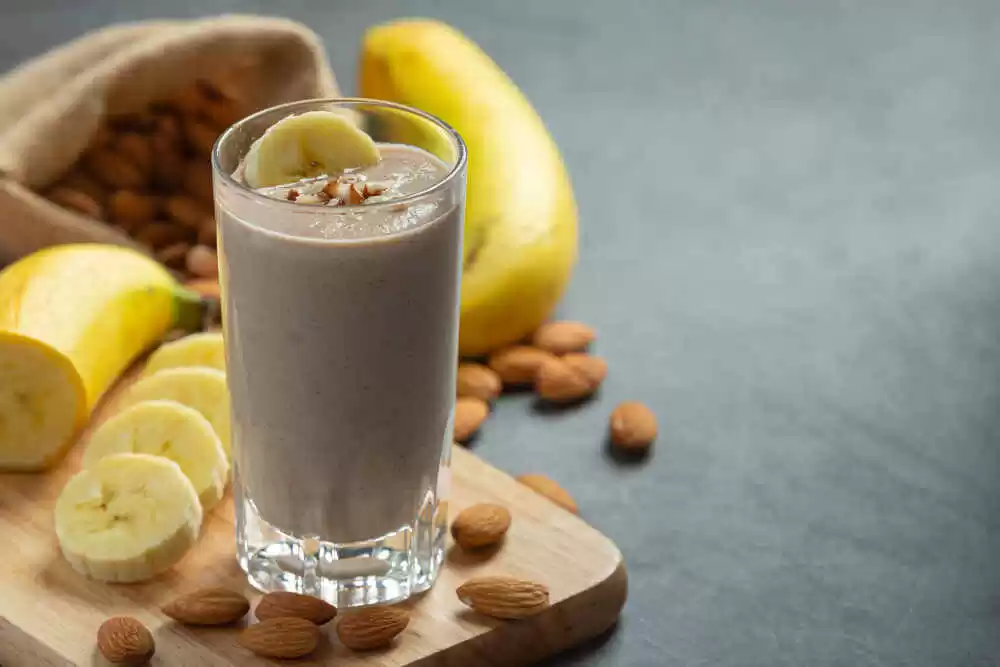Managing diabetes requires constant attention to diet, especially when it comes to macronutrients like carbohydrates and protein. One question many people living with diabetes ask is: Can I drink protein shakes or protein drinks? The answer is yes—with the right ingredients and awareness of your nutritional needs, protein drinks for diabetics can be a healthy and convenient option.
Why Protein Is Important for Diabetics
Protein is an essential macronutrient that helps with:
- Muscle repair and growth
- Blood sugar regulation
- Feeling full for longer periods
Unlike carbohydrates, protein does not cause sudden spikes in blood glucose. Instead, it provides slow-releasing energy, making it especially important for people managing type 1 or type 2 diabetes. Including a good source of protein in every meal can improve insulin sensitivity and reduce cravings.
Can Diabetics Drink Protein Shakes?
Yes, diabetics can safely enjoy protein drinks. However, the key is choosing or preparing low-sugar, low-carb, and nutrient-dense options. A protein shake filled with added sugars or syrups can do more harm than good.
When carefully selected, protein shakes for type 2 diabetes can:
- Support weight loss or weight management
- Help control post-meal blood sugar
- Improve overall energy levels
- Serve as a quick meal or snack when time is short
What to Look for in Protein Drinks for Diabetics
When buying or making a protein drink, look for the following features:
1. Low Sugar Content
Aim for less than 5g of sugar per serving. Avoid sweetened yogurts, chocolate syrups, or high-fructose ingredients.
2. Low to Moderate Carbs
Keep total carbs between 5–15g per serving. This helps prevent unwanted spikes in blood sugar.
3. High-Quality Protein
Choose protein sources such as:
- Whey protein isolate
- Pea protein
- Brown rice protein
- Hemp protein
- Collagen peptides
4. Healthy Fats
Incorporate heart-healthy fats like almond butter, chia seeds, or flaxseeds to improve satiety and help with blood sugar control.
5. Fiber
Look for drinks with at least 3g of fiber, which slows down glucose absorption.
Ingredients to Avoid
Some store-bought protein drinks can be misleading. Be cautious of these common red flags:
- Added sugars (sucrose, fructose, cane sugar)
- Artificial sweeteners like aspartame and saccharin
- High-carb fruits (e.g., bananas, mangoes in large quantities)
- Creamers or full-fat dairy with added sugars
- Flavoring syrups and sweetened nut butters
Instead, go for natural, unsweetened ingredients and diabetic-friendly milk alternatives. To learn more about safe milk alternatives, read our guide: Coconut Milk for Diabetes: Is It Healthy or Not?.
Best Protein Powders for Diabetics
Here are some of the top-rated low-carb, diabetic-friendly protein powders:
1. Orgain Organic Plant-Based Protein
- 21g protein
- 0g added sugar
- Gluten-free, soy-free
2. Isopure Zero Carb Whey Protein
- 25g protein
- 0g carbs, 0g sugar
- Ideal for low-carb diets
3. Garden of Life Keto Meal Balanced Shake
- 16g protein
- 0g sugar
- Contains probiotics and healthy fats
4. Vega Sport Premium Protein
- Plant-based
- 30g protein
- Sweetened with stevia
Homemade Protein Shake Recipes for Diabetics
Making your own protein shake gives you full control over the ingredients. Here are some delicious and diabetes-friendly recipes to try.
1. Chocolate Peanut Butter Shake
Ingredients:
- 1 scoop chocolate whey protein isolate
- 1 tbsp unsweetened peanut butter
- 1 cup unsweetened almond milk
- ½ avocado (adds creaminess + fiber)
- Ice cubes
Nutrition (approx.):
- Protein: 25g
- Carbs: 9g
- Sugar: 2g
2. Green Power Protein Smoothie
Ingredients:
- 1 scoop unflavored pea protein
- 1 handful spinach
- 1 tbsp ground flaxseed
- ½ cucumber
- ½ small green apple
- 1 cup coconut water (no added sugar)
Nutrition (approx.):
- Protein: 20g
- Carbs: 12g
- Sugar: 5g
- High in antioxidants
3. Berry Vanilla Protein Shake
Ingredients:
- 1 scoop vanilla plant-based protein
- ½ cup frozen mixed berries
- 1 cup unsweetened oat milk
- 1 tbsp chia seeds
Nutrition (approx.):
- Protein: 22g
- Carbs: 13g
- Sugar: 4g
- Fiber: 6g
Best Times to Drink Protein Shakes for Diabetics
Timing matters for blood sugar management. Here’s when protein drinks are most beneficial:
1. As a Meal Replacement
Choose a well-balanced shake with protein, healthy fats, and fiber. Ideal for breakfast or lunch.
2. After Workouts
Post-exercise, your body needs protein for muscle recovery. A low-carb shake is perfect within 30–60 minutes of finishing a workout.
3. Snack Between Meals
Protein shakes can help bridge long gaps between meals without affecting blood sugar negatively.
Store-Bought Protein Drinks Diabetics Can Trust
If you prefer convenience, here are some pre-made options:
1. Glucerna Hunger Smart Shake
- Made specifically for diabetics
- 15g protein
- 6g sugar, low GI
2. Premier Protein Shake
- 30g protein
- 1g sugar, 3g fiber
- Multiple flavors
3. OWYN Plant-Based Protein
- Dairy-free
- 20g protein
- 4g sugar
Always check the nutrition label and ingredients list before purchasing.
Frequently Asked Questions
Are protein drinks safe for type 2 diabetics?
Yes, when chosen wisely, they can help manage hunger, promote weight loss, and stabilize blood sugar levels.
Can I drink a protein shake every day?
Yes, but make sure it fits within your overall nutritional goals. It’s best to consult your doctor or dietitian.
Should I drink protein shakes before or after a workout?
For diabetics, drinking a protein shake after a workout is usually more beneficial to help with muscle recovery and stabilize post-exercise blood sugar.
Can protein shakes cause blood sugar spikes?
Only if they are high in sugar or refined carbs. Always opt for low-carb, no-added-sugar protein drinks.
Final Thoughts
Protein drinks for diabetics can be a valuable addition to your diet when managed properly. Whether you’re using them to replace meals, fuel workouts, or support weight loss, the key is choosing the right ingredients and avoiding sugar-laden options.
Always pair protein shakes with whole foods, physical activity, and regular monitoring of your blood glucose to ensure a balanced approach.
If you’re experimenting with different bases for your shakes, consider exploring Coconut Milk for Diabetes: Is It Healthy or Not? to learn about one of the safest milk alternatives for diabetics.



